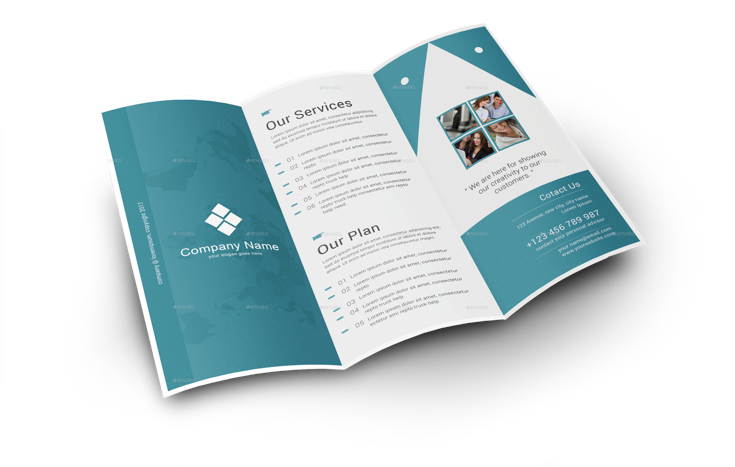Controlling Managed Care Denials – Part 3
How you respond to claim denials is the single most important factor in getting them paid. Because of this, the timeliness and effectiveness with which you and your staff respond to denials is a crucial part of your jobs. Just a few unpaid claims can affect your facility’s bottom line, performance, and even threaten jobs.
This is the follow-up to the previous posts titled “Controlling Managed Care Denials – Part 1 and Part 2”. In those posts we covered some of the proactive things you can do to make sure your claims have the best chance to be paid upon initial submission and the just as challenging issue of dealing with denials. In this post we address how to prepare for and respond to denials, including appealing them. We hope you find something useful that will help you see better results in getting your denied claims resolved and paid.
RESPONDING TO DENIALS
Have a plan in place:
What are you going to do? Who is responsible for it? How are they going to do it? What are they going to do if they still can’t get the claim paid?
Our clients with the most consistent success with their Managed Care billing use a combination of the four items listed here that has proven effective for their facility. It is their experience, and ours, that all of these are needed for consistent success.
Policies and Procedures:
Think of these as the foundation for your success. This is how you set up the specific steps and expectations for responding to denials. Define staff responsibilities for fixing the claim and for verifying it was done. Define your expected action, response and follow-up timeline. Define who is monitoring this on both a day to day and long term basis.
Hold your staff accountable:
There are many facilities that have all the policies, procedures and safeguards in place, on paper. It is amazing how many of the same facilities then do nothing to ensure that these are followed at all. When your staff knows there is no accountability, even the best employees will relax.
To have consistent results, you need to make sure your policies and procedures are followed, that your people know what is expected of whom and you hold them accountable. Many facilities enforce the use of a simple checklist, either paper or electronic, that is initialed at each step and follows each claim through the system. This can be seen as just another rarely needed extra step, yet we have seen this simple thing lead to significant and effective changes.
It cannot be overstated that the most successful facilities we see are the ones with an involved Administrator. They don’t need to play a major role in the regular billing to make sure their staff is accountable. The best use of their valuable time is to help with problems and to make sure things are going well with checks and spot checks.
Document:
You have billing software for a reason, so use it! Everything you do on a claim needs to be documented. Writing something on post-it notes or on the file folder is not enough. Your billing software will have a place for billing/collection notes; this is where everything needs to go. There will be times where a simple time stamp for when something was entered is enough to beat a timely filing denial. Try that with a copy of a post-it…IT WONT WORK! Document everything you do:
- The date and time you called
- The phone number called, there are so many possibilities
- Who you talked with
- What you said to them and what they said
- Call reference numbers
- Your next action step
- The date you need to follow up on
Follow-up:
The policies and procedures will specify the expected follow-up schedule and methodology. The trick is to actually DO IT! It doesn’t help at all to know what needs to be done if no one is going to do it anyway.
- How long do you have to respond to a notice?
- How do you respond?
- Who is responsible for each step?
- How often are you expected to call?
- At what point do you escalate to your supervisor/manager/Administrator?
APPEALING DENIALS
Sometimes a claim remains unpaid despite your best efforts. The next step may be an appeal. It is true that an appeal is the last resort you may have. Because an appeal is the last chance you get with most payers, only appeal as a last resort.
Is an appeal appropriate?
An appeal may not be necessary. This is where you verify that all of your avenues to correct the claim have been addressed. Should you submit a corrected claim, or is a retro authorization called for? Be very sure that you have tried everything because the appeal is the final chance you get.
Know the process:
Every insurance company and their plans will have their own twist to the process. You need to know their requirements as well. Verify the address to send the appeal to. Know if there are specific forms to initiate appeals. Are there different levels of appeals, or do you just get one chance? What is the process at each level? What are the time limits to file appeals and respond to decisions?
Follow-up:
Most appeals are lost due to poor follow-up. This may sound like a repeat of what we’ve already told you, absolutely. Once you reach the point of appealing a claim, everything changes. For some companies, the phone number you need to call, the address used and even the claim number can change. You need to know what you will need for a successful appeal and be prepared, not surprised.
It is common for the facility to have as few as 10 days to respond to a records request. You need to know any applicable time limits and plan for them. If there is no system in place to respond quickly, the records will not be sent in time and your appeal will be denied. It may be possible to re-appeal the claim get it right then, but you need to know that before you use up your one final chance to get paid.
We know it sounds like a lot to do. It is!
The alternative is to keep losing revenue that you have earned. We hear many administrators and executives tell us that they can’t afford to hire another person in the business office, or that their people don’t have the time to work their denials like this. That is fine; it is each facility’s prerogative to be wrong. It is amazing to us how much money is written off without even thinking of trying everything possible to get paid. Just 3 or 4 written-off accounts can be enough to hire a nurse, or buy a needed piece if equipment.
Take the time to look at how things are being done at your place, identify what needs to be done, prioritize and start working on it. Yes, you are busy, that’s why you get the big bucks! 🙂 But you need to do this, or something very like it. The bottom line is you either need to do this, write it all off, or bring in help.

5 ways to increase your revenue without adding a single resident
Chances are that you’re leaving revenue on the table. This quick resource guide will help ensure that your office is getting the most from your existing business so you can maximize your revenue without adding a single resident.


